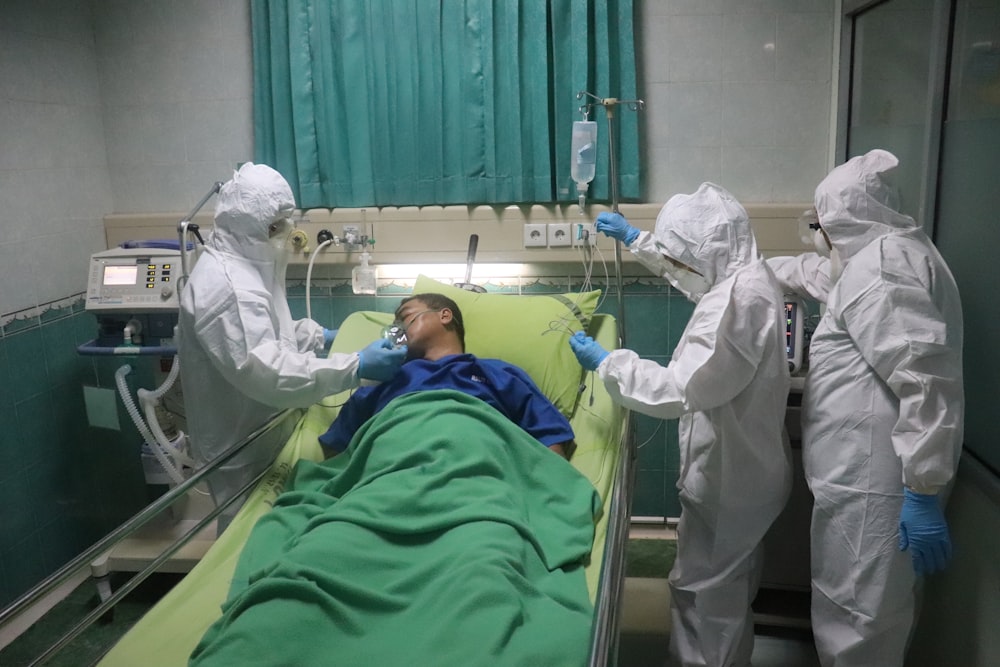When we go to a medical facility or consult a healthcare professional, we rely on them to deliver the necessary care and treatment. Regrettably, instances of negligence and careless actions can lead to occurrences of medical malpractice.
Medical malpractice transpires when a healthcare professional neglects to offer the expected standard of care, resulting in injury or harm to the patient. Although medical malpractice can manifest in various ways, there are specific categories of medical errors that tend to be more prevalent.
In this article, we will delve into the concept of medical malpractice and explore five of the most frequently encountered types of medical malpractice.
What Is Medical Malpractice?
Medical malpractice takes place when patients suffer harm due to the actions or omissions of a healthcare professional. Healthcare professionals bear a responsibility to their patients, and if they neglect their duty, causing harm in the process, they may be held accountable.
How to Determine If Your Doctor Was Negligent
Establishing whether your doctor was negligent is contingent upon the specific details of your case. Seeking the counsel of a medical malpractice attorney becomes essential in assessing whether the doctor veered away from the standard of care. They can delve into the specifics of the incident, scrutinize your medical records, and collaborate with medical experts to assess the quality of care provided.
It's crucial to note that the mere occurrence of an unexpected event or an undesirable outcome does not automatically constitute malpractice. Malpractice is only applicable if another physician of the same speciality identifies it as a breach of the standard of care. Proving this breach and establishing its direct causation of the injury for which legal action is pursued is a requirement.
In addition to demonstrating negligence, plaintiffs must also prove causation and damages. When initiating a medical malpractice claim, the plaintiff needs to establish:
1) The healthcare provider owed the patient a duty of care,
2) The provider breached their duty of care, typically due to negligence or medical errors,
3) The provider's medical negligence substantially caused the plaintiff's injury, and
4) The plaintiff suffered significant harm due to the provider's negligence.
If the healthcare provider acts negligently but the individual is not harmed, building a robust case becomes unlikely. However, if significant harm results from a medical error, it is advisable for the affected party to promptly engage with a medical malpractice attorney.
5 Most Common Types of Medical Malpractice
1. Misdiagnosis or delayed diagnosis
The consequences of misdiagnosis or delayed diagnosis can be severe for a patient. When a healthcare professional fails to accurately diagnose a condition, the patient may not receive the appropriate treatment, leading to potential further injury or harm. For instance, if a patient with cancer is misdiagnosed with a less serious condition, the detection of cancer may occur only in a later stage, complicating the treatment process.
2. Surgical errors
Surgical errors encompass a spectrum from performing an incorrect surgery on a patient to inadvertently leaving a foreign object inside the patient's body post-surgery. These errors can result in serious, and in some cases, life-threatening consequences. For instance, performing an erroneous surgery may necessitate additional procedures to rectify the mistake.
3. Medication errors
Medication errors can manifest when a healthcare professional prescribes the wrong medication, administers an incorrect dosage, or neglects to adequately monitor a patient's medication regimen. Such errors may lead to significant side effects or, tragically, death. For example, prescribing a medication to which a patient is allergic can precipitate a severe allergic reaction or worse.
4. Birth injuries
Birth injuries may arise when a healthcare professional neglects to adequately monitor a mother or baby during childbirth. These injuries can range from minor to severe, with long-term repercussions for the child and the family. Failure to recognize signs of distress during labour, for instance, can result in serious harm to the baby, including brain injuries.
5. Anaesthesia errors
Anaesthesia errors occur when a healthcare professional administers an excessive or insufficient amount of anaesthesia or fails to monitor a patient adequately during a procedure. Such errors can lead to critical consequences, including brain damage or, in extreme cases, death. Administering excessive anaesthesia, for example, may result in respiratory failure or other severe complications.
In the event of injury due to medical malpractice, seeking legal representation is crucial for you or your loved one. At Mcauley Lawyers, our compensation lawyers have experience handling medical malpractice cases and are dedicated to helping our clients get the compensation they deserve.
Is Medical Malpractice Considered a Criminal Offense?
Medical malpractice refers to the failure of a doctor, hospital, or another healthcare provider to meet the appropriate standard of care. It typically falls under civil action, allowing the victim to seek compensation. Recoverable damages may include medical expenses, lost wages, household services, pain and suffering, permanent disability, and disfigurement.
When Does Malpractice Transform Into Fraud?
In certain instances, unnecessary medical procedures may result from inadequate training. However, if these unnecessary procedures stem from a fraudulent scheme aimed at increasing profits, the hospital and participating doctors may face charges of fraud, in addition to civil medical malpractice liability. For example, several doctors have been convicted of federal fraud charges related to the insertion of unnecessary cardiac stents.
In 2013, the owner and three other executives of the now-closed Sacred Heart Hospital, along with four of the hospital’s doctors, faced federal charges of Medicare fraud by engaging in kickbacks for the referral of Medicare and Medicaid patients – a scheme allegedly involving unnecessary medical procedures such as tracheotomies.



No comments yet